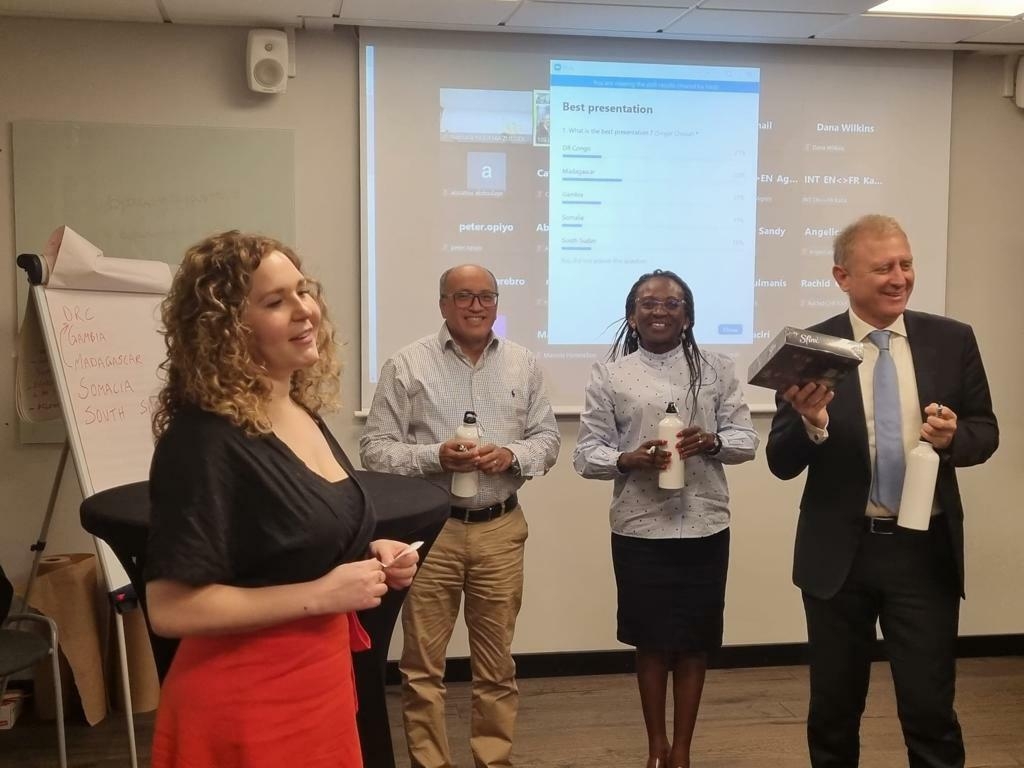
It is well-recognised that capacity building and institutional strengthening present additional complexities in fragile or low-income states characterised by political instability and weak institutions. For supreme audit institutions operating in these contexts, there are tremendous impediments affecting their functioning, including constraints on their independence, staffing gaps and inadequate funding. As a result, audit delivery, quality and engagements are hampered limiting the SAI’s impact on public financial management (PFM) and the well-being of citizens.
To support SAIs operating in such challenging contexts, the INTOSAI Development Institute (IDI) of Supreme Audit Institutions’ Accelerated Peer-support Partnership (PAP-APP) deploy officials from peer-country SAIs to share good practices and provide additional short-term capacity. Beneficiary countries include the Democratic Republic of Congo (DRC), Eritrea, The Gambia, Guinea, Madagascar, Niger, Sierra Leone, Somalia, South Sudan, Togo and Zimbabwe.
Intosai, recognising the importance of fully understanding local context and acting within existing institutional constraints, approached CABRI to share the principles used in its Building Public Finance Capabilities (BPFC) programme. This was done through a four-day training workshop from 12-15 September in Oslo, Norway with INTOSAI, AfroSAI-E and CREFIAF staff and officials from peer SAIs, including Kenya, Gabon, Latvia, Tunisia, Senegal, Sweden, Morocco, United Kingdom, Norway, Netherlands and Turkey.
Andrew Lawson from Fiscus Limited set the scene by situating audit within the broader PFM landscape and reflecting on why PFM reforms so often fail to deliver anticipated results. It was suggested that SAIs need to be more involved in the design of wider PFM reforms and monitoring reform implementation or outcomes. There was however would need to be balanced with any perceived conflict of interest because subsequent audit work might need to comment on the consequences of reform actions. Andrew concluded by highlighting that a new orthodoxy is developing which highlights that for PFM reform to succeed it requires government ownership, problem-driven and context specific approaches and flexible “arm’s length” funding modalities.
The Grand Doyen of PDIA, Prof Matt Andrews from the Building State Capability programme at Harvard’s Kennedy School, introduced the participants to why the problem-driven iterative adaptation (PDIA) approach is best suited to the complex, wicked challenges facing SAIs in developing countries. The importance of well-defined, tangible and measurable problems was demonstrated to be a key tool to incentivise agents to take risks, question the status quo, create dialogue, and provide the basis to search for alternatives.
The core of the training, facilitated by Danielle Serebro, Acting Programme Manager at CABRI, and Signe Sorensen, a BPFC Associate, involved teams of peer SAIs nominating a problem affecting the SAIs they support, deconstructing it into its causes and sub-causes (and in many cases, sub-sub-sub causes) and considering ideas to begin resolving this. The aim of this was not to implement action ideas but rather for Peers to understand how the PDIA approach is applied so that they can utilise these concepts in supporting SAIs.
The problems chosen included that the National Assembly in The Gambia is not following up on audit recommendations, limiting the impact of reports; jurisdictional control in Madagascar is missing or delayed, limiting agencies’ functioning; in South Sudan, SAI salaries are paid late or not at all affecting staff morale and the SAI’s ability to execute its mandate; Audit recommendations are often not implemented in Somalia compromising service delivery and the value of audit to the citizens; and in the DRC, there have never been judgements issued on the public accountants, encouraging corruption and impunity.
The training concluded with Prof Andrews sharing insight into the importance of functional teams in solving complex problems and how the PDIA Coach helps teams to build norms; ensures continuity of engagement; and facilitates psychological safety, accountability and motivation.
The conversations at the training reaffirmed the importance of building strong relationships and constant dialogue between ministries of finance and SAIs. We look forward to future opportunities to bring these stakeholders together to ensure that audit recommendations result in stronger and more accountable PFM systems and ultimately contribute to better service delivery for citizens of fragile and low-income countries across Africa.